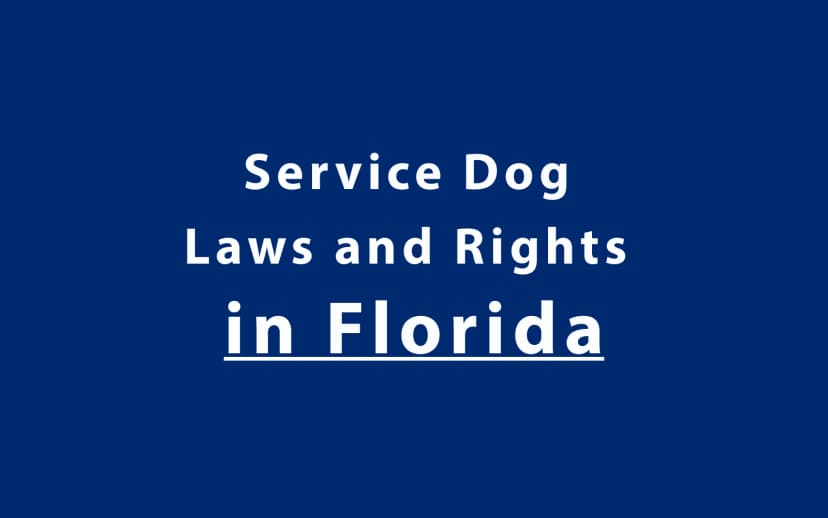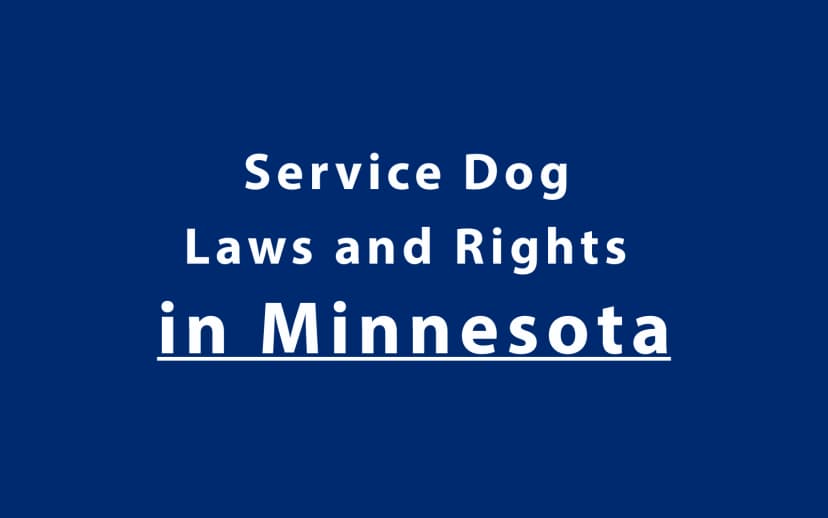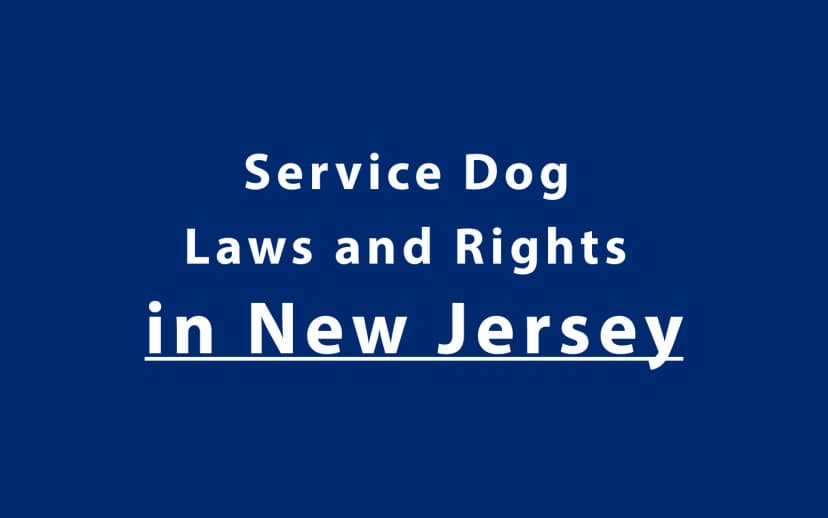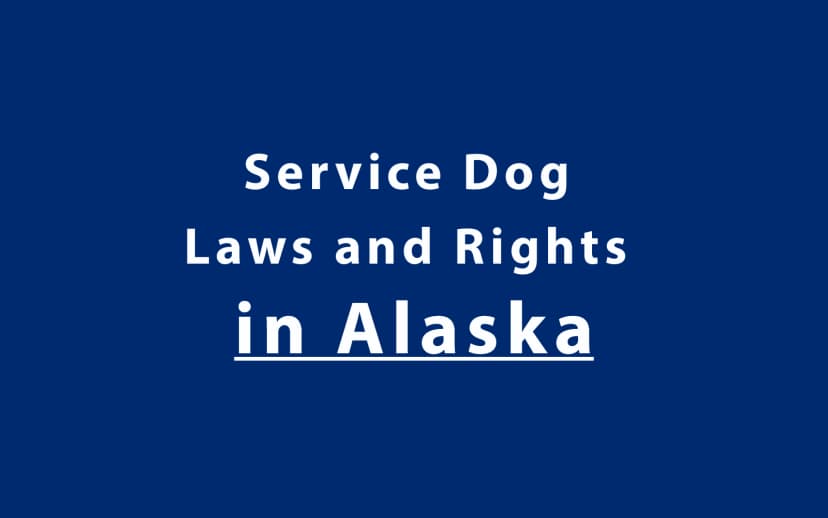Service Dog Laws and Rights in Nevada
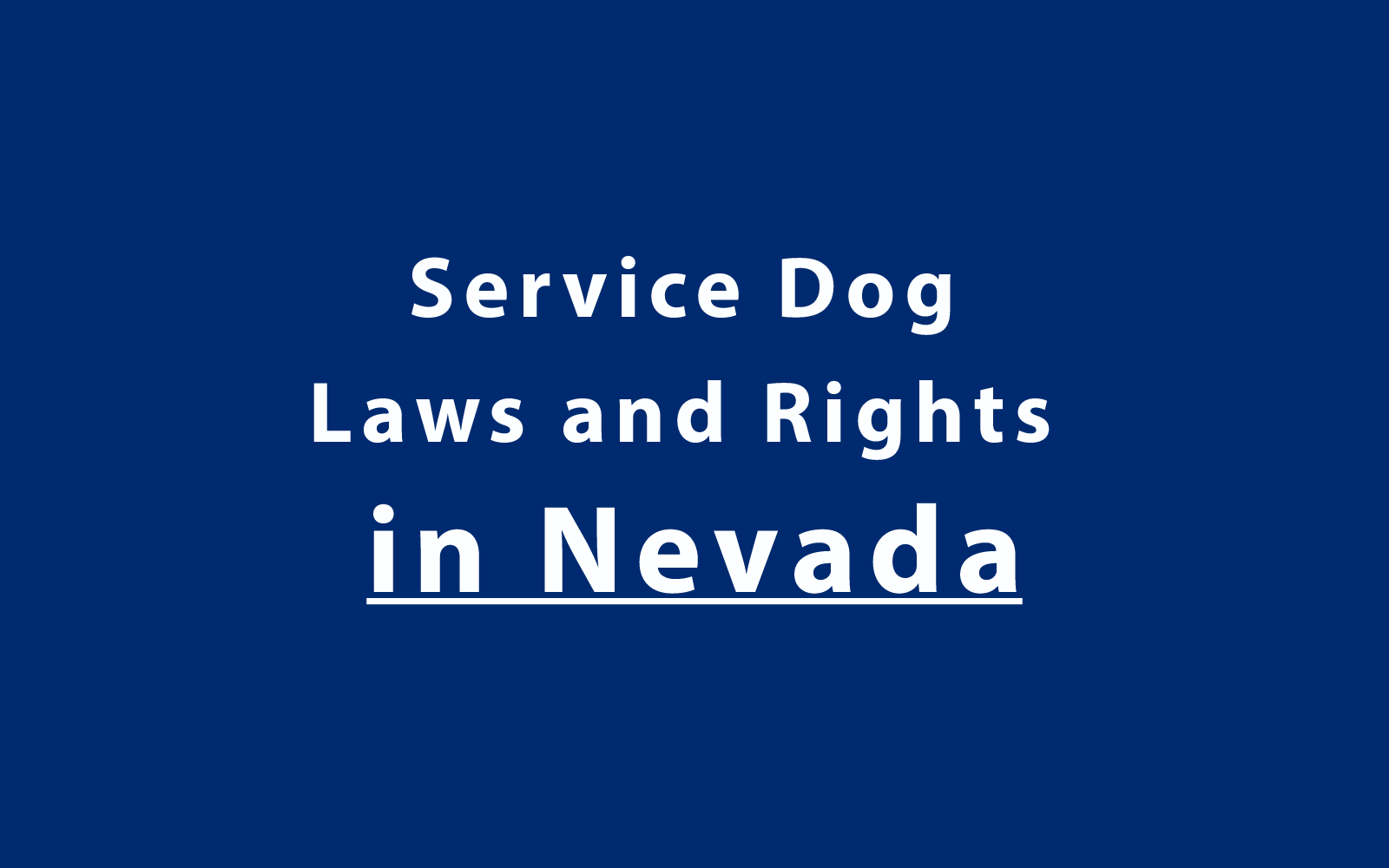
For individuals with disabilities in Nevada, service dogs offer more than companionship; they are a vital support system, assisting with essential tasks and improving quality of life. However, navigating your rights and responsibilities as a service dog handler requires a clear understanding of both federal and state laws. This guide provides a detailed overview of the legal landscape surrounding service dogs in Nevada, ensuring that you can confidently access public spaces, housing, workplaces, and more.
1. Understanding What Qualifies as a Service Dog in Nevada
Under the Americans with Disabilities Act (ADA), a service dog is defined as a dog that is individually trained to perform specific tasks or work for a person with a physical or mental disability. Nevada law aligns closely with this federal definition, particularly through Nevada Revised Statutes (NRS) 426.097 to 426.805.
Importantly, psychiatric service dogs (PSDs) are included in this definition. These dogs assist individuals with conditions such as PTSD, anxiety, and depression by performing tasks like interrupting panic attacks or providing grounding.
It is crucial to distinguish between service dogs and emotional support animals (ESAs). While ESAs provide therapeutic benefits, they are not granted public access rights under the ADA or Nevada state law. Misrepresenting an ESA as a service dog is illegal and carries consequences.
2. Public Access Rights for Service Dogs in Nevada
Nevada upholds the ADA’s guarantee that service dogs must be allowed to accompany their handlers in all public areas. This includes:
• Restaurants and cafes
• Retail stores
• Hotels and motels
• Government buildings
• Public transportation
Nevada law further enforces these rights under NRS 426.510, which makes it unlawful to deny access to individuals using service animals.
However, handlers must meet certain responsibilities:
• Dogs must be leashed, harnessed, or tethered unless it interferes with the task.
• The dog must remain under control and non-disruptive.
• The dog must be housebroken.
A business may only ask two questions:
1. Is the dog required because of a disability?
2. What work or task has the dog been trained to perform?
They cannot ask for documentation, demand a demonstration, or inquire about the handler’s specific disability.
3. Housing Rights: Service Dogs and Assistance Animals
Service dogs are protected under the Fair Housing Act (FHA), which prohibits discrimination against individuals with disabilities in housing. This applies to:
• Rental apartments and houses
• Condominiums
• Public housing
• University housing
Key provisions include:
• No pet fees or deposits may be charged for a legitimate service dog.
• Breed restrictions do not apply to service dogs.
• Landlords must allow reasonable accommodations, even in “no-pet” housing.
You may be required to submit a letter from a medical professional confirming the need for a service animal, but you are not required to provide training or certification documentation.
4. Employment Protections for Individuals with Service Dogs
The ADA Title I protects employees and job applicants from discrimination based on disability. This includes the right to have a service dog as a reasonable accommodation in the workplace.
Employers must:
• Engage in an interactive process with the employee.
• Allow the service dog if it does not pose an undue hardship.
• Maintain confidentiality around the employee’s condition.
Handlers should be prepared to explain how the dog assists with job-related functions. Employers may ask for documentation of the need for accommodation but not the dog’s training certificate.
5. Transportation and Air Travel in Nevada
In general, public transportation systems such as buses, trains, and ride-shares (e.g., Uber, Lyft) must allow service dogs to accompany their handlers. Nevada’s Regional Transportation Commission (RTC) policies align with ADA guidelines.
For air travel, the Air Carrier Access Act (ACAA) ensures service dogs can fly in the cabin at no extra charge. As of 2021, airlines require:
• U.S. DOT Service Animal Transportation Form
• U.S. DOT Relief Attestation Form for flights over 8 hours
These documents confirm the dog’s training, behavior, and ability to control bodily functions. Always check with your airline in advance.
Nevada airports, including McCarran International Airport (LAS) and Reno-Tahoe International Airport (RNO), offer service animal relief areas within secure terminals.
6. Training and Identification Requirements in Nevada
There is no legal requirement in Nevada (or under federal law) for a service dog to be registered or certified.
Training can be conducted by:
• The handler (self-training)
• A professional trainer or organization
The dog must be trained to perform specific tasks related to the handler’s disability. General obedience alone is not sufficient.
Although not required, service dog handlers often choose to use:
• Service dog vests
• ID cards
• Certificates
These tools can help reduce public confusion but have no legal bearing on access rights.
7. Service Dog Fraud and Penalties in Nevada
Nevada takes service dog fraud seriously. Under NRS 426.805, it is a misdemeanor offense to:
• Misrepresent a non-service animal as a service dog
• Use fake service dog gear or identification
Penalties may include:
• Fines up to $500
• Community service
• Possible civil damages if harm is caused
This law aims to protect the integrity of legitimate service dog teams and reduce the burden on public and private spaces.
8. Service Dogs in Nevada Schools and Universities
Service dogs are permitted in K-12 schools and public colleges under the ADA.
For K-12 students, parents may need to:
• Submit written requests to school administrators
• Develop an Individualized Education Program (IEP) or 504 plan
In college settings, students must register with the school’s Disability Services Office to request accommodation. Schools may not demand documentation beyond confirming the dog’s trained status and necessity.
9. How to Register Your Service Dog (Optional)
While not legally required, registering your service dog with a reputable organization like AssistanceDogPartners.org can be helpful.
Benefits include:
• Access to a digital and physical ID card
• Certificate of registration
• Training log templates and legal resources
Registration is not a substitute for proper training but can serve as a useful tool when traveling or dealing with housing providers.
Conclusion: Protecting Your Rights as a Handler in Nevada
Nevada offers strong legal protections for individuals with service dogs, reinforced by federal statutes like the ADA and ACAA. Whether you’re entering a restaurant, boarding a plane, or requesting accommodations at work, your rights are safeguarded by both state and national law.
By understanding your responsibilities and knowing how to advocate for your rights, you can navigate public life more confidently with your service dog by your side. Always stay informed, respect the laws, and help protect the service dog community by leading with integrity.
Resources:
